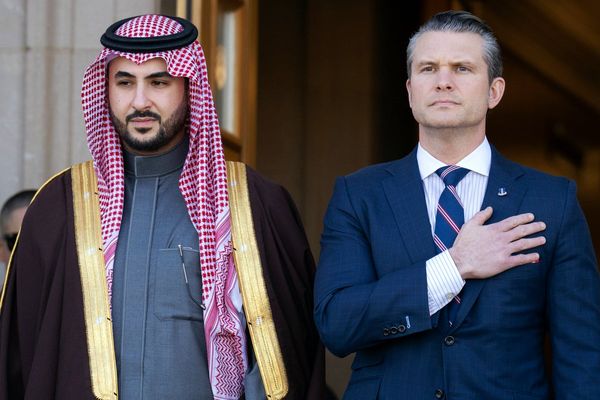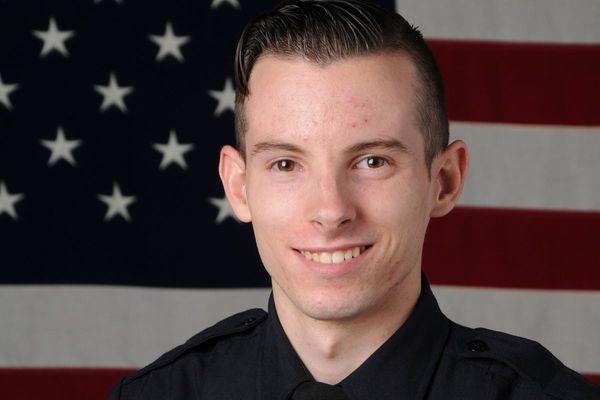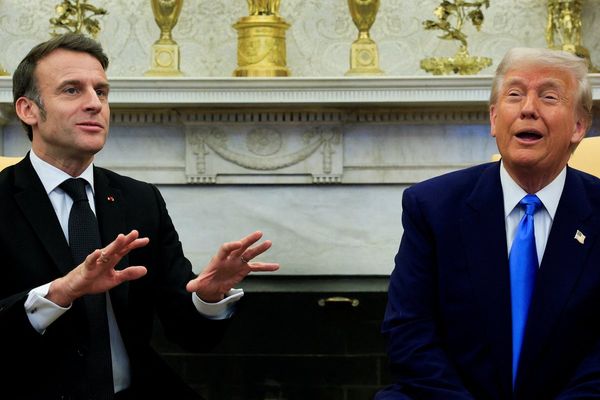The International Criminal Court (ICC) on Friday issued an arrest warrant for Russian President Vladimir Putin over his alleged involvement in the abduction of Ukrainian children and teenagers.
Why it matters: The arrest warrants for Putin and another Russian official represent some of the first international charges issued since Russia's invasion of Ukraine.
- The ICC issued an arrest warrant for Maria Alekseyevna Lvova-Belova, Russia's commissioner for children’s rights, over similar allegations.
- More than 40 countries that are party to the ICC had requested its intervention, according to the New York Times, which first reported on forthcoming war cases and arrest warrants.
- The Kremlin has previously said it does not recognize the ICC or its jurisdiction, according to state-run media agency TASS.
State of play: Russia systematically relocated at least 6,000 children from Ukraine to Russia since the start of the war, a Conflict Observatory report published in February found.
- Many of the children, who were taken to camps or other facilities, engaged in pro-Russia reeducation efforts, per the report. Some of the facilities were used for foster care or adoption in Russia and Crimea.
- Karim Khan, the ICC's chief prosecutor, previously indicated that the alleged abductions were a priority for his investigators.
- Russian missile strikes have frequently targeted energy facilities, water supplies, and residential buildings.
The forced deportation or forcible transfer of populations from land they lawfully occupy by occupying power is outlawed by the Rome Statute, which established the ICC.
- Russia signed the statute but later withdrew its support in 2016.
- Ukraine is not a state party to the Rome Statute but has twice accepted the ICC's jurisdiction in response to alleged crimes occurring on its territory.
What they're saying: "This is an important moment for the process of justice before the ICC," Judge Piotr Hofmański, president of the ICC, said on Friday.
- Hofmański said the contents of the arrest warrants are secret in order to protect the identities of victims.
- "Nevertheless, the judges of the chamber decided with this case to make the existence of the warrants public in the interest of justice and to prevent the commission of future crimes."
- Ukrainian Foreign Minister Dmytro Kuleba applauded the ICC's action, saying Putin and Lvova-Belova "will be held accountable for stealing children."
Kremlin spokesperson Dmitry Peskov told Russian-state media on Friday that Russia considers the ICC's warrants "null and void" because it does not recognize the court's jurisdiction.
- Peskov did not comment on the crimes the court alleged against Putin and Lvova-Belova, nor did Russian Foreign Ministry spokeswoman Maria Zakharova.
- Lvova-Belova praised the arrest warrant against her, framing it as the international community recognizing her work of rescuing children from a war zone, according to Russian-state media.
- Lvova-Belova has been personally sanctioned by the European Union, the and Japan, U.S., Switzerland, Australia, Canada and the U.K.
The big picture: It's unlikely that either of the cases will make it to trial, since the ICC cannot conduct a trial unless the relevant people are in custody, and Russia is unlikely to turn over its own people over.
- The New York Times reported earlier this month that the Pentagon was blocking the Biden administration from sharing U.S. intelligence with the ICC about Russian war crimes in Ukraine for fear that it could set a precedent for prosecuting Americans.
- The ICC launched an investigation into allegations of war crimes, crimes against humanity or genocide in Ukraine in the early days of the war.
Go deeper: What counts as a war crime and why they're so hard to prosecute
Editor's note: This story has been updated with additional background and reporting.







